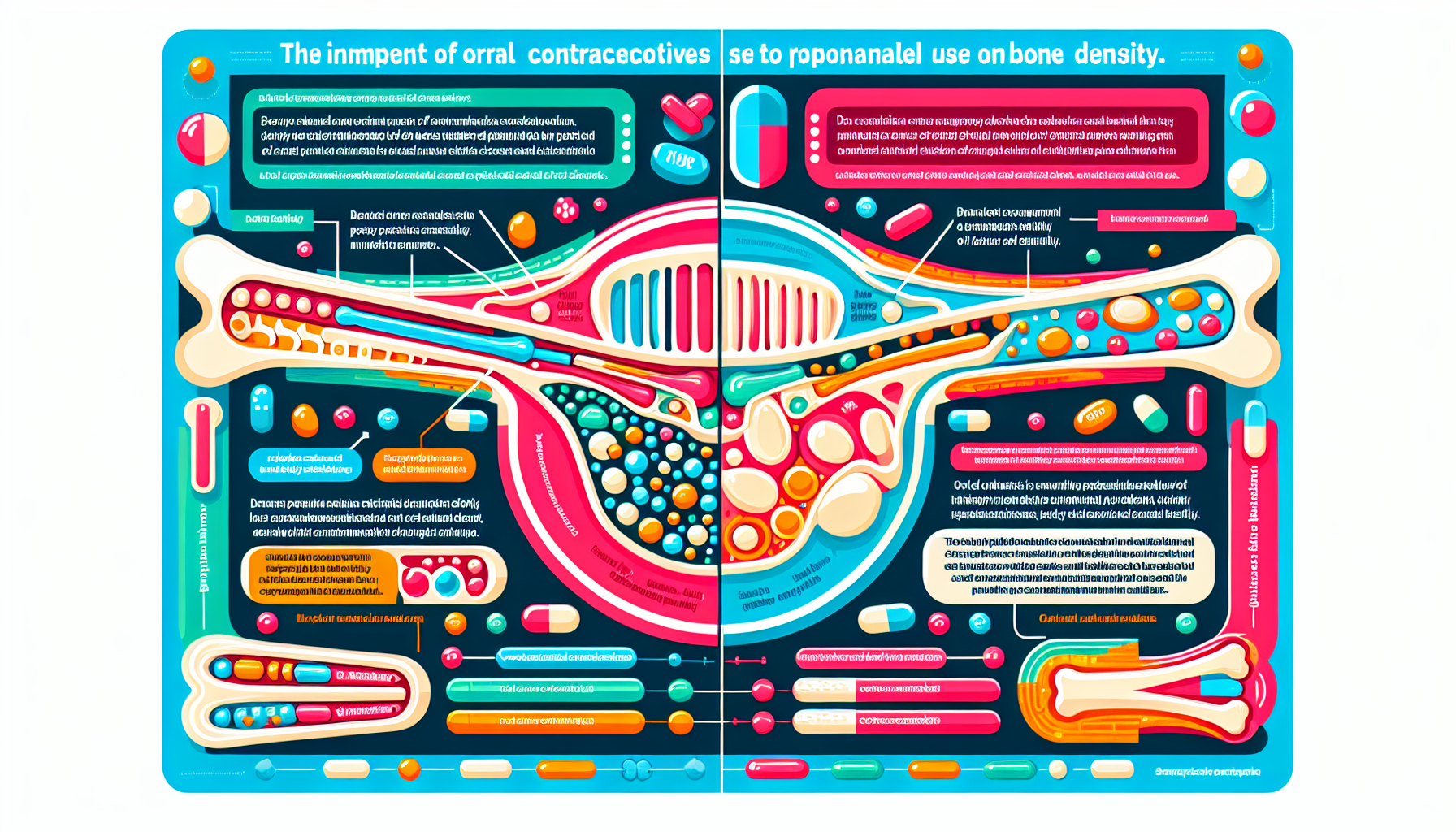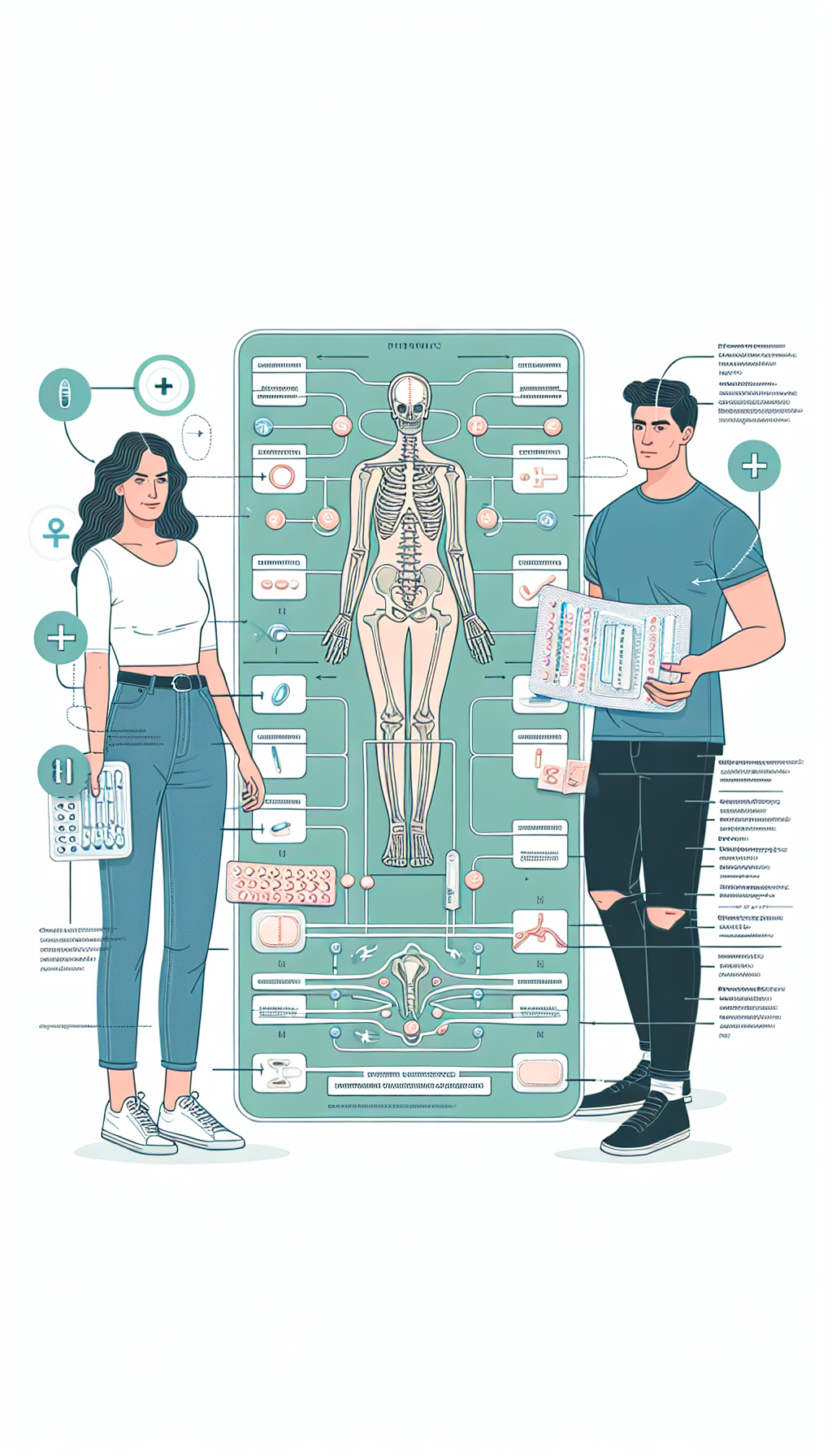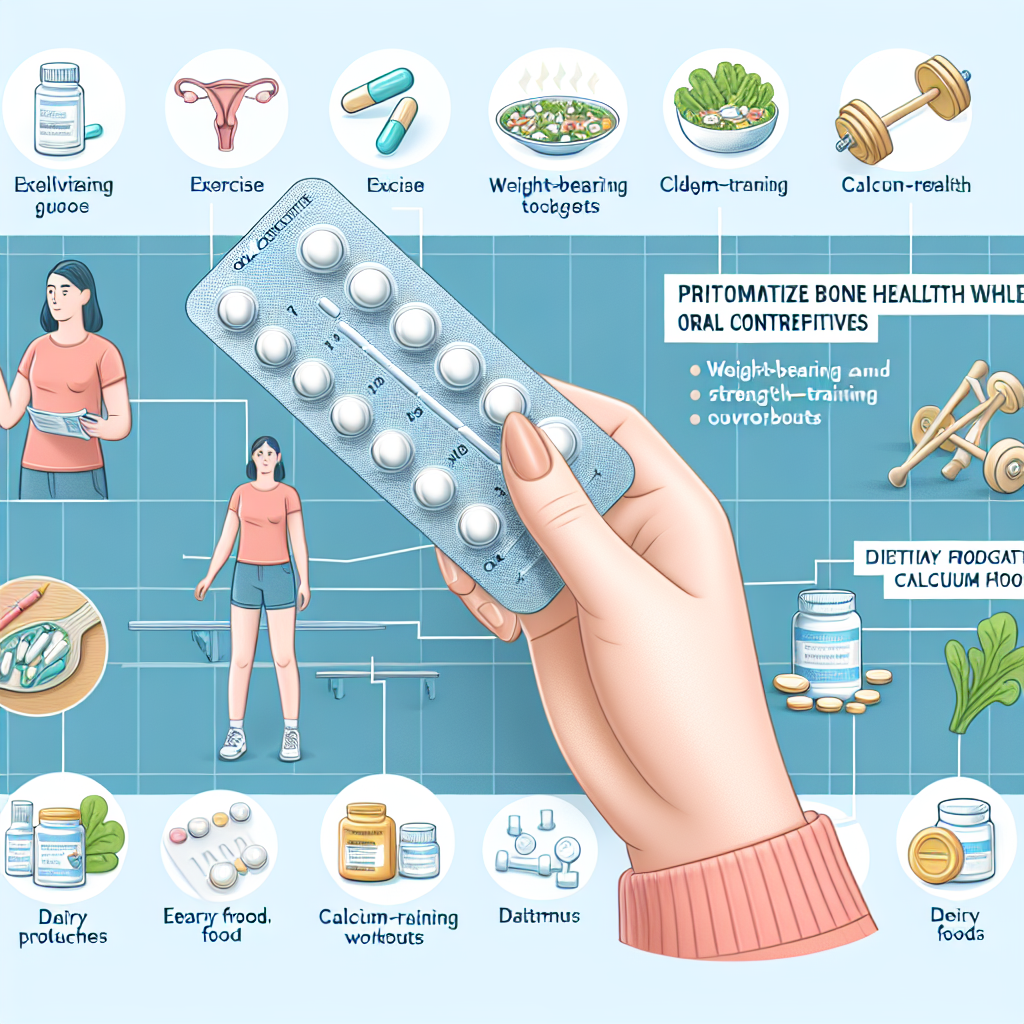Oral contraceptives have become a staple in modern reproductive healthcare, offering women control over their fertility with a high degree of reliability. However, alongside their benefits in family planning, there’s growing interest in their systemic effects, particularly on bone health. Bone density is a critical aspect of overall health, serving as the foundation for a strong, functioning skeletal system. This article delves into the intricate relationship between oral contraceptives and bone density, providing insights based on the latest research and clinical findings.
Understanding Bone Density
Before we explore the impact of oral contraceptives on bone health, it’s essential to understand what bone density is and why it matters. Bone density refers to the amount of mineral matter per square centimeter of bones. It is a crucial indicator of bone strength and an essential factor in the prevention of osteoporosis and fracture risk. The bone remodeling process, where old bone tissue is replaced by new, is influenced by various factors, including hormones, physical activity, and nutrient intake.
For more comprehensive information on bone health, you might want to read about Bone Health, which provides an in-depth look at maintaining and improving the skeletal system’s integrity.
Hormones and Bone Health
Estrogen, a primary female sex hormone, plays a significant role in the maintenance of bone density. It helps regulate the bone remodeling process and ensures the balance between bone resorption and formation. This is where oral contraceptives, which typically contain synthetic forms of estrogen and progesterone, come into play. They can mimic the natural hormonal environment that supports bone density, but the long-term effects are complex and multifaceted.
The Research Landscape
Recent studies have examined the impact of oral contraceptives on bone mineral density (BMD). Some research suggests that oral contraceptive use, particularly during adolescence when peak bone mass is being achieved, may be associated with lower BMD. Conversely, other studies have indicated that any negative impact on BMD may be reversible after discontinuation of the contraceptives.
Oral Contraceptives and Bone Density: What We Know
Oral contraceptives may influence bone density in several ways:
- Estrogen Levels: The synthetic estrogen in contraceptives may not have the same efficacy in bone protection as natural estrogen.
- Duration of Use: Long-term use of oral contraceptives could potentially affect peak bone mass, especially if used during critical periods of bone accrual.
- Type of Oral Contraceptive: Different formulations can have varying effects on bone health, with some studies suggesting that certain progestins may diminish the positive effects of estrogen on the bone.
To understand these dynamics further, one may refer to the article on Advances in Nutraceuticals for Bone Density Improvement, which discusses the role of supplements in supporting bone health.
Clinical Perspectives
Clinicians often weigh the benefits of oral contraceptive use against potential risks, including the impact on bone health. For women at risk of osteoporosis or those with a family history of bone density issues, this consideration becomes even more crucial. In such cases, healthcare providers may recommend alternative birth control methods or additional strategies to mitigate any potential negative effects on BMD.
Strategies for Bone Density Conservation
For women using oral contraceptives who are concerned about their bone health, there are several strategies to consider:
- Adequate Calcium and Vitamin D Intake: Ensuring sufficient intake of calcium and vitamin D is vital for bone health. The role of these nutrients in maintaining bone density is well-documented.
- Regular Weight-Bearing Exercise: Activities like walking, running, and resistance training can help to stimulate bone formation and improve BMD.
- Monitoring Bone Density: Women on long-term oral contraceptives should consult their healthcare provider about monitoring their bone density.
- Lifestyle Choices: Smoking cessation and limiting alcohol intake can also benefit bone health.
Incorporating dairy alternatives can be especially beneficial for those with lactose intolerance, as highlighted in the discussion on Dairy Alternatives for Lactose Intolerant Individuals Seeking Calcium.
External Resources Supporting Bone Health
To further support the insights provided, here are some external resources:
- An overview of bone density research that highlights the complexity of how hormonal contraceptives can affect bone health.
- A study on the effects of contraceptives on bone mineral density offering a nuanced understanding of the relationship between contraceptive use and bone health.
- Guidelines on calcium and vitamin D intake for bone health from the Office of Dietary Supplements.
- A resource on weight-bearing exercises for bone health from the National Institutes of Health.
Conclusion
While oral contraceptives provide an essential service in family planning, their impact on bone density is a significant area of ongoing research. It is essential for women using these contraceptives to stay informed about potential risks and to engage in preventive health strategies to maintain strong bones. Regular consultation with healthcare providers, adherence to a nutrient-rich diet, and an active lifestyle are key to mitigating any potential risks associated with oral contraceptive use.
As research continues to evolve, staying abreast of the latest findings will be crucial. Women should feel empowered to discuss their bone health with their healthcare providers and to access resources that will support them in making informed decisions about their reproductive health and overall well-being.



